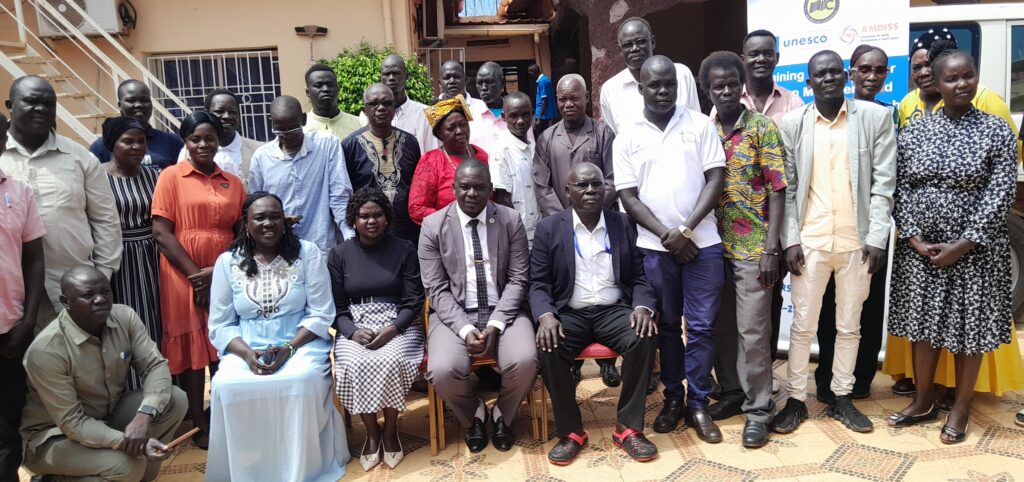UNESCO has acknowledged the challenges facing media managers in South Sudan and assured them of continued support.
Addressing a two-day training in Wau for media managers and editors from Western Bahr el-Ghazal, Warrap, Northern Bahr el-Ghazal and Lakes states, the representative of the UNESCO Country Director, Mr Paul Night, said they would try their best with their partners to help journalists build their capacities.
“We are pleased to have you all here. We know the challenges that you face at you stations and we are trying our best with our partners, the Association for Media Development in South Sudan (AMDISS) and so many others to help you build your capacities,” said Night.
The training, which brought together 30 participants, aimed at providing knowledge on countering hate speech, gender-responsiveness, and editions reporting, conflict-sensitive reporting, fact-checking, and ethical and accurate reporting.
“We know that the community radio stations in South Sudan have challenges in term of human resources and financial management. We know many people come in then go out looking for greener pastures and thus there is no sustainability,” said Night.
He encouraged the participants to improve their knowledge because the country was expected to go to the polls in 2026, which requires quality reporting.
The chairperson of the Board of Director for the South Sudan Broadcasting Corporation (SSBC), Mary Ajith, urged the journalists to collaborate on countering hate speech.
“For media management, countering hate speech and misinformation and disinformation, is something that you can do collaboratively, not in competition,” said Ajith.
“The unity of the media is important as we talk about elections. Our politicians are always quoted saying election is a process. We the media have to be involved in this process and that is why training on the election is important,” she added.
Western Bahr el-Ghazal State Information minister Samuel Nicola told the journalists that the training was designed to strengthen their capability in managing information and promoting ethics and advocating the rights of all.
“This workshop has been designed to strengthen your ability and capacity in managing information as well as promoting ethical journalism and advocating the rights of all media personnel, whether in the country or in Bahr el-Ghazal,” said Nicola.
The minister also assured the journalists that the state had no major differences with them in Wau, and promised to cooperate.




